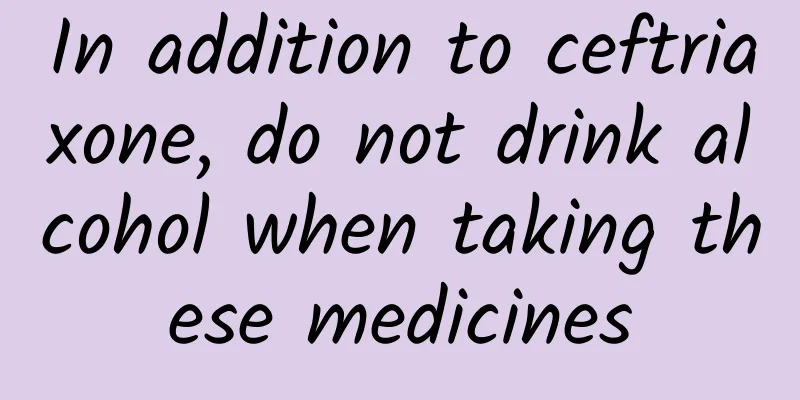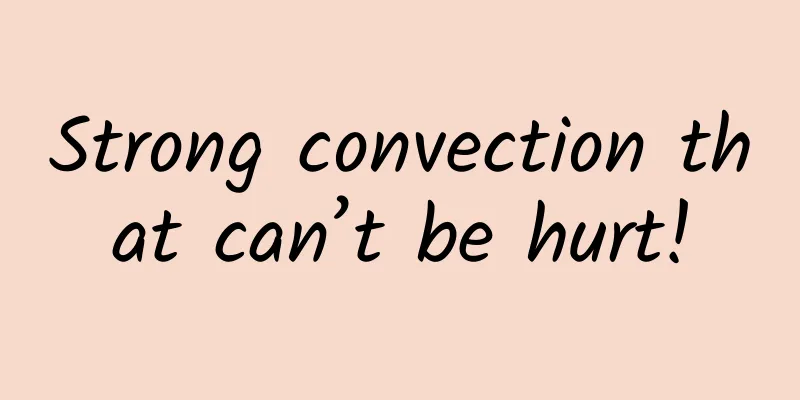In addition to ceftriaxone, do not drink alcohol when taking these medicines

|
After Laba, it is the New Year, when friends and family gather together for dinner and drinking. If you or your family or friends happen to be taking medicine, be careful: taking medicine and drinking are not compatible at all. Especially if you are taking the following medicines, you must not drink! 1 Cephalosporins Most cephalosporins contain a methylthiotetrazolium group with a chemical structure similar to disulfiram. Drinking alcohol before or after taking the medicine may cause a disulfiram-like reaction. A disulfiram-like reaction refers to the fact that some drugs have a chemical structure similar to disulfiram. If you drink alcohol after taking the medicine, you may experience facial flushing, conjunctival congestion, blurred vision, violent pulsation of blood vessels in the head and neck or throbbing headaches, dizziness, nausea, vomiting, dyspnea, convulsions, and even death. Once a disulfiram-like reaction occurs, the drug and alcohol-containing products should be discontinued in time. Mild cases can be relieved on their own, while more serious cases need to be sent to the hospital for oxygen inhalation and symptomatic treatment. Special reminder: cephalosporins should not be used within 3 days after drinking. Do not drink alcohol within 7 days of medication. At the same time, do not take medicines and foods containing alcohol, such as eating chocolate with alcohol filling, taking Huoxiang Zhengqi water, using injections containing ethanol as excipients, and using alcohol to treat the skin. In addition, nitroimidazole drugs, such as metronidazole and tinidazole, may also cause disulfiram-like reactions with ethanol and should be used separately. 2 Acetaminophen tablets Acetaminophen tablets are an ingredient used to reduce fever in most cold medicines and are also commonly used to relieve mild to moderate pain (such as joint pain, migraine, etc.). Studies have shown that drinking alcohol may increase the hepatotoxicity of acetaminophen. 3 Blood pressure medication Excessive drinking can dilate blood vessels, inhibit the sympathetic nerves and vasomotor center, and weaken myocardial contractility. If you take antihypertensive drugs after drinking, small blood vessels will dilate further, blood volume will be further reduced, blood pressure will drop sharply, and postural hypotension or syncope will occur easily. 4 aspirin There are pharmacokinetic interactions and certain pharmacodynamic interactions between aspirin and ethanol. The intake of ethanol at any concentration will increase irritation to the digestive tract, easily cause gastric mucosal lesions or recurrence of ulcers, and increase the risk of upper gastrointestinal bleeding associated with aspirin. 5 Sedatives and hypnotics When sedatives and hypnotic drugs are used together with ethanol, the degree of central nervous system inhibition is related to the type of drug, dosage, and alcohol consumption, and manifests as increased drowsiness, decreased reaction sensitivity, distraction, poor coordination, and in severe cases even death. 6 Antiepileptic drugs Ethanol can affect the metabolism of certain anti-epileptic drugs, thus affecting their efficacy. In addition, drinking alcohol itself may also cause epileptic seizures. Therefore, it is not suitable for epileptic patients to drink alcohol. 7 Diabetes-lowering drugs Drinking alcohol while taking sulfonylurea drugs can cause severe hypoglycemia or irreversible neurological damage, because ethanol can hinder the process of glycerol, lactic acid and certain amino acids turning into sugar, thus lowering blood sugar and causing a "disulfiram-like reaction". In short, ethanol can change the response of many drugs, and drinking a lot of alcohol can affect the biotransformation of many drugs. You should read the instructions carefully while taking the medicine, and inform the doctor of your recent drinking history when you see a doctor. You should avoid drinking alcohol during the use of the above-mentioned drugs to avoid causing serious adverse reactions. Review: Experts from the National Health Science Expert Database Lv Qianzhou, Chief Pharmacist, Zhongshan Hospital Affiliated to Fudan University Planning: Tan Jiayu Yunxi Editor: Liang Jing Source: Healthy China |
<<: Why do animals like salt but plants don’t?
>>: How can a world without horses produce so many “old drivers”?
Recommend
A cable connected Europe and America, and the history of human communication has changed since then
Today, we can no longer imagine a world without m...
10 steps to build a brand from scratch (Part 1)
Recently, new consumer product companies that hav...
Watch out for Fit and POLO, the all-new Ford Fiesta will be launched this year
In the automotive industry, Germany, the United S...
Powerful core, surging power - Tsinghua Tongfang A8500 commercial computer review
Speaking of the domestic brand Tsinghua Tongfang,...
The pilot's last patron saint - ejection life-saving system
The movie "Lord of the Skies" depicts t...
App brand word is “infringed”? Apple says you can do this!
The brand name of their own app was "infring...
Why can’t we retain new users? Here are 4 best solutions
Why is it that even though we have been attractin...
How to make birthday greetings for African children?
Videos of African children holding up signs to se...
Does each organ in the body have an aging timetable?
As we age, the functions of various organs in the...
Practical review: How to increase the number of paying users from 0 to 700 in 3 months?
I have seen many products that were poorly made. ...
A 3.6-magnitude earthquake occurred in Puyang, Henan! Many places in Shandong and Henan felt the earthquake. Pay attention to the following misunderstandings when avoiding earthquakes →
According to the official measurement of the Chin...
Huang Zhuo of Gizwits: The Internet of Things must be decentralized
If the development of the smart hardware market i...
The withdrawal of the lawsuit in New York is just the beginning. Foxconn is going all out to attack Hisense and take back Sharp. What are its chances?
The peaceful television industry was disrupted by...
How to make information flow video ads more efficient?
Some advertisers have already reaped the benefits...
How to achieve growth at low prices? Let you know Xiaomi's business model
How to achieve growth at low prices? How to make ...









